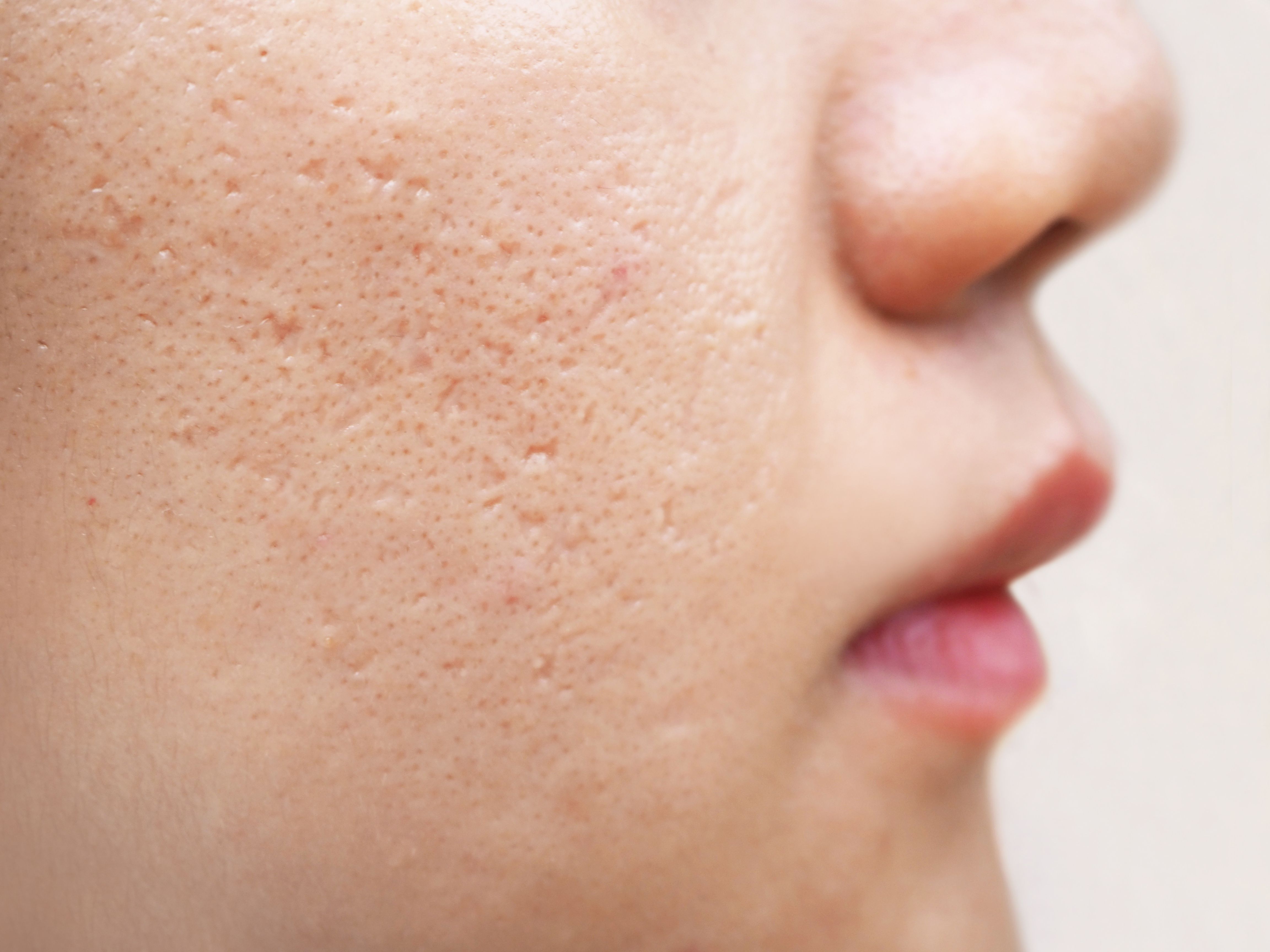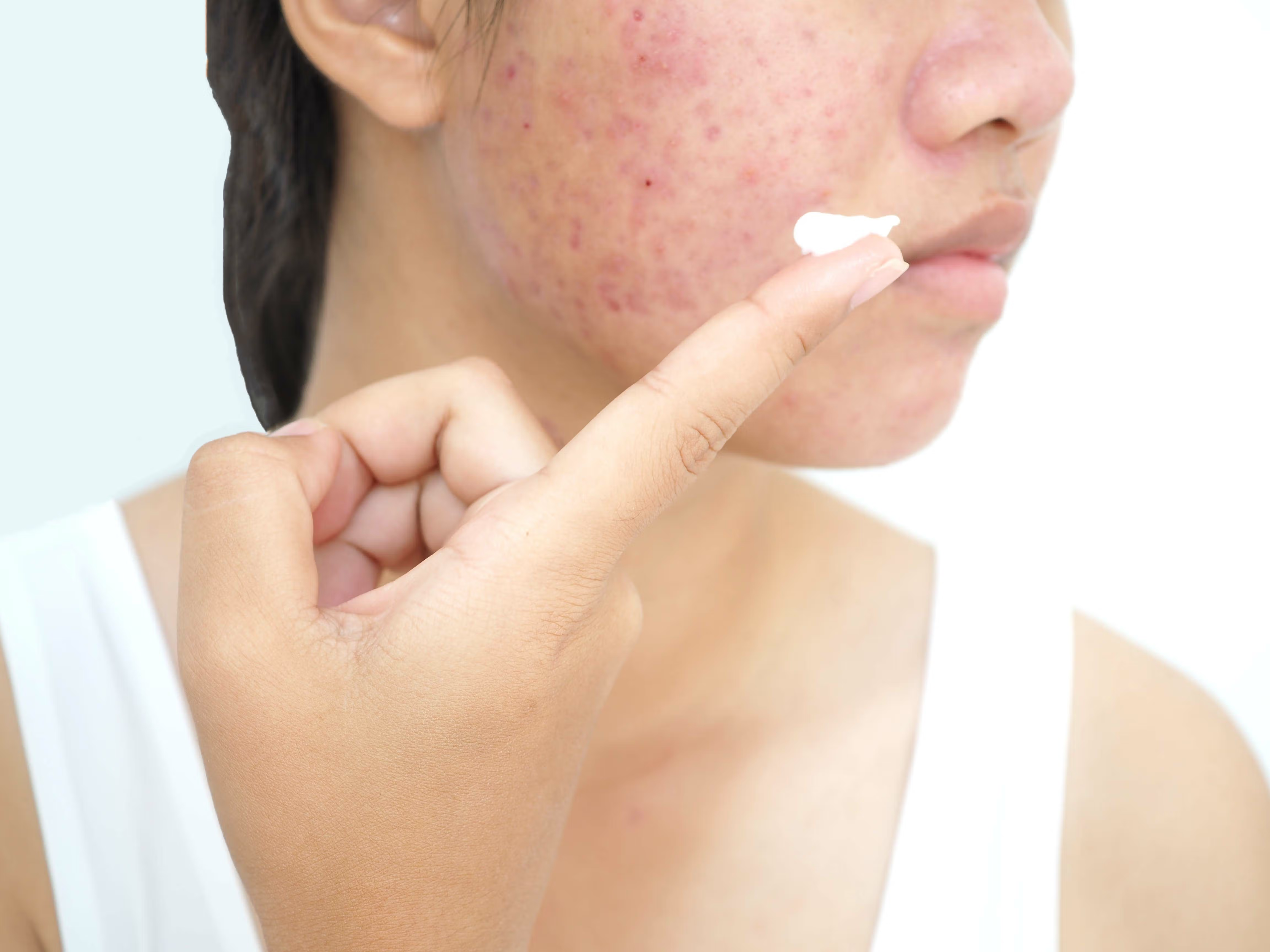- Acne
- Actinic Keratosis
- Aesthetics
- Alopecia
- Atopic Dermatitis
- Buy-and-Bill
- COVID-19
- Case-Based Roundtable
- Chronic Hand Eczema
- Drug Watch
- Eczema
- General Dermatology
- Hidradenitis Suppurativa
- Melasma
- NP and PA
- Pediatric Dermatology
- Pigmentary Disorders
- Practice Management
- Precision Medicine and Biologics
- Prurigo Nodularis
- Psoriasis
- Psoriatic Arthritis
- Rare Disease
- Rosacea
- Skin Cancer
- Vitiligo
- Wound Care
Article
Can Stress Cause Acne?
Author(s):
New studies explore how stress plays a large role in triggering acne.
Understanding what comes first—stress or acne—is a little bit of a chicken-or-the-egg scenario. For years, researchers have documented the mental and emotional toll acne can take, but newer studies are focusing on the role stress can have in actually triggering this skin condition.
Acne affects between 50% to 80% of teens and adults.1 Hormones, bacteria, and other physiological forces are often to blame for breakouts, but researchers have recently drawn a clearer link between emotional stress and acne of all kinds.1
In one study, 67% of Australian medical students reported stressful events before an acne outbreak, and up to 82% of Koreans in two other studies reported the same.1 For students, relationships and exam schedules were often to blame, but stressful life events and sleep changes were common stressors reported before acne outbreaks across the age spectrum in multiple reports.
It’s not just the development of acne that is linked to stress, though. Some reports have also connected higher stress levels to more severe acne outbreaks, despite a lack of increased sebum production during those periods. Other studies debate this correlation, suggesting that stress tolerance and coping skills—not stressful events themselves—have the greater impact on acne severity.
Although newer studies don’t deny the role of stress in triggering acne outbreaks, some research suggests that there some times when stress plays a larger role. For example, stress is a commonly reported triggering factor in adult female acne, with 83.2% of adult women who experience acne reporting moderate stress and 15.5% reporting high levels of stress.1 Job stress in particular was blamed for acne outbreaks by about 23% of women.1
Increasing social pressure has only made the problem worse, the study continued, noting that female acne linked to stress has been rising in recent years. The study attributed roughly 50% of acne outbreaks in women aged 25 to 40 to stress.1
From a physiological standpoint, other reports have explained exactly how stress translates to skin changes. Stress can increase levels of substances or processes in the body like:2
- Neurotransmitters
- Cytokines
- Hormones
- Cortisol
- Glucocorticoids
- Inflammation
- Genetic expressions
All of these can play a role in some way in either the direct development of acne, or increased production in skin oils or inflammation, the study reports.2
One 2019 study took the examination of a link between stress and acne a step further, testing stress relief measures as an acne treatment. Specifically, the study tested the Pythagorean Self-Awareness Intervention (PSAI) tool—a daily memory and mindfulness exercise. After eight weeks of use, the study revealed that more than 93% of people in the treatment group saw improvements in their acne compared to about 27% in the control groups.4
References:
1. Jović A, et al. The impact of psychological stress on acne. Acta Dermatovenerol Croat. 2017;25(2):133-141.https://hrcak.srce.hr/file/272775
2. Branisteanu DE, et al. Adult female acne: Clinical and therapeutic particularities (Review). Experimental and Therapeutic Medicine. 2022;23:151. doi: 10.3892/etm.2021.11074. https://www.spandidos-publications.com/10.3892/etm.2021.11074
3. Chatzikonstantinou, F., Miskedaki, A., Antoniou, C., Chatzikonstantinou, M., Chrousos, G. and Darviri, C. (2019), A novel cognitive stress management technique for acne vulgaris: a short report of a pilot experimental study. Int J Dermatol, 58: 218-220. doi:10.1111/ijd.14227.
4. Zigkiri ES, Nicolaides NC, Bacopoulou F, et al. The Effect of the Pythagorean Self-Awareness Intervention on Psychological, Lifestyle and Cognitive Measures of a Community Sample. J Mol Biochem. 2020;9(1):32-40. https://www.ncbi.nlm.nih.gov/pmc/articles/PMC7842312/#
Newsletter
Like what you’re reading? Subscribe to Dermatology Times for weekly updates on therapies, innovations, and real-world practice tips.











